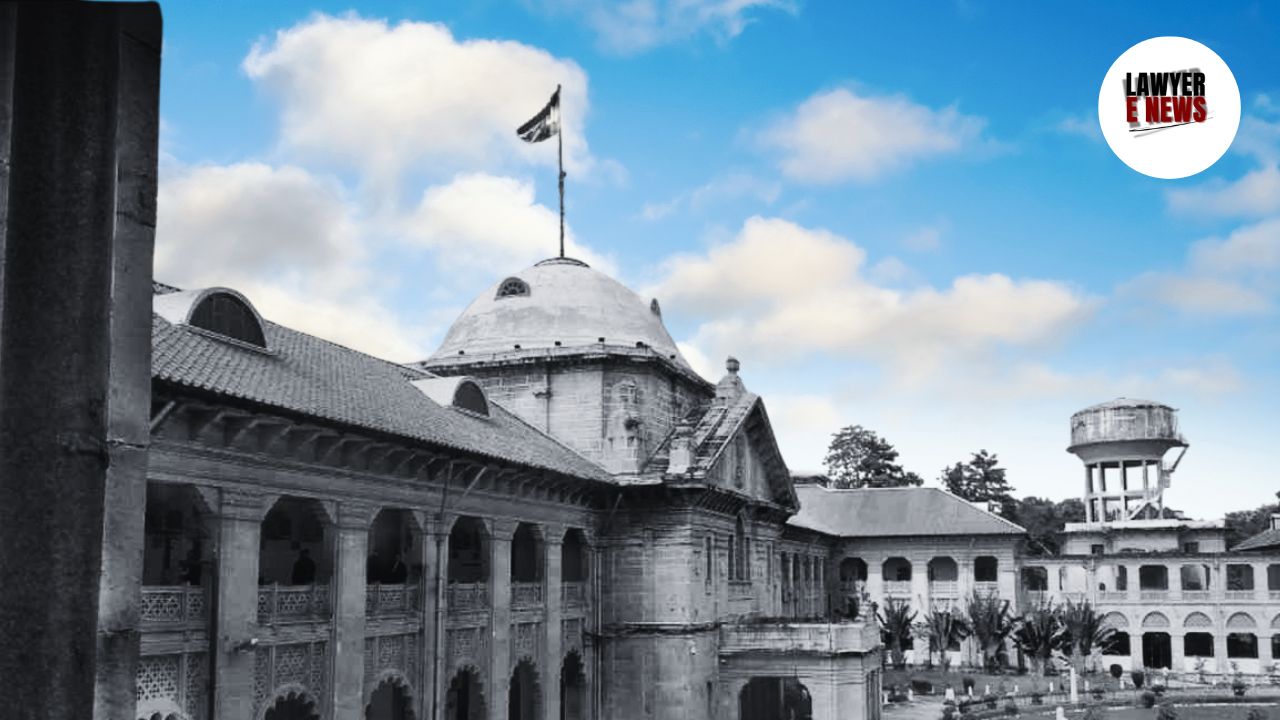-
by Admin
15 February 2026 5:01 PM



Allahabad High Court (Lucknow Bench) dismissed an application filed under Section 482 of the Code of Criminal Procedure (Cr.P.C.) by Atul Kumar Singh @ Atul Rai, seeking to quash the cognizance order, chargesheet, and related trial proceedings in a case involving allegations of abetment of suicide, criminal conspiracy, and other offenses. The Court upheld the territorial jurisdiction of the trial court in Lucknow and directed the proceedings to continue, emphasizing that the evidentiary issues raised by the applicant should be addressed during the trial.
The case stems from the tragic incident on August 16, 2021, when the victim, a woman who had previously accused Atul Kumar Singh of rape, and her friend committed self-immolation outside the Supreme Court in New Delhi. The incident was live-streamed on social media, during which the victim accused Atul Kumar Singh and co-accused Amitabh Thakur, a former IPS officer, of defamation, harassment, and creating unbearable circumstances that led to her suicide.
The applicant argued that the events leading to the alleged offense did not occur in Lucknow and therefore challenged the territorial jurisdiction of the trial court in Lucknow under Section 177 of the Cr.P.C., which states that an offense should ordinarily be tried in the jurisdiction where it occurred. The defense also claimed that there was no evidence to establish criminal conspiracy under Section 120-B of the Indian Penal Code (IPC) or abetment of suicide under Section 306 IPC. Additionally, it was argued that the chargesheet and cognizance order were an abuse of the process of law, and the inherent powers of the High Court under Section 482 Cr.P.C. should be invoked to quash the proceedings.
Rejecting these arguments, Justice Rajesh Singh Chauhan held that part of the cause of action did arise in Lucknow. The Court noted that the victim and her friend had visited the residence of the co-accused Amitabh Thakur in Lucknow, where they confronted him about defamatory materials being circulated on social media, allegedly with the involvement of Atul Kumar Singh. The Court also referred to the victim’s live video statement before the suicide, in which she alleged a conspiracy between the applicant and the co-accused to defame her and pressure her into withdrawing the rape allegations. These events were sufficient to establish that part of the alleged offense occurred within the territorial jurisdiction of Lucknow, as permitted under Sections 178 and 179 Cr.P.C.
On the issue of criminal conspiracy, the Court observed that such offenses are often established through circumstantial evidence and do not always require direct proof. Citing precedents, the Court emphasized that conspiracy involves an agreement to commit an unlawful act, and the prosecution could rely on the surrounding circumstances to establish the conspiracy. The victim’s statements, both in her live video and dying declaration, coupled with other materials on record, were deemed sufficient to justify the continuation of the trial.
Regarding the charge of abetment of suicide under Section 306 IPC, the Court held that this offense involves instigation or intentional aid to the act of suicide. The victim’s dying declaration and live-streamed statements on social media explicitly named the applicant and the co-accused, alleging that their actions caused her mental agony and pushed her to take the extreme step. Whether the applicant possessed the necessary intent or mens rea to instigate the suicide was deemed a matter for the trial court to determine based on the evidence presented.
The Court also underscored the limited scope of its inherent powers under Section 482 Cr.P.C. It reiterated that these powers should be exercised sparingly and only in cases of manifest injustice or when the allegations do not disclose any offense. The materials on record, including the victim’s statements and the subsequent investigation, disclosed a prima facie case against the applicant. The Court emphasized that factual disputes and questions of evidence should be resolved during the trial and not at the stage of proceedings under Section 482 Cr.P.C.
While dismissing the application, the Court directed the trial court to conduct and conclude the proceedings expeditiously, without granting unnecessary adjournments to either party. The judgment also clarified that the observations made in the order would not prejudice the trial court's independent assessment of the evidence.
This decision highlights the Court’s cautious approach in exercising its inherent powers to quash criminal proceedings, particularly in sensitive cases involving serious allegations such as abetment of suicide and criminal conspiracy. By upholding the jurisdiction of the Lucknow court and allowing the trial to proceed, the Allahabad High Court has reinforced the principle that evidentiary disputes and questions of intent are best addressed during the trial process.
Date of decision: December 10, 2024
